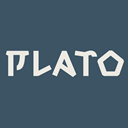Uncovering the Best DeepPavlov Alternatives for Conversational AI Development
DeepPavlov is a powerful open-source conversational AI library built on TensorFlow and Keras, renowned for facilitating the development of production-ready chatbots, complex conversational systems, and NLP/dialogue systems research. While it offers robust capabilities, developers often seek DeepPavlov alternatives to explore different functionalities, frameworks, or specific features that might better align with their project requirements. This article delves into some of the leading alternatives, offering a comprehensive look at what makes them stand out.
Top DeepPavlov Alternatives
Whether you're looking for different philosophical approaches to dialogue management, specific research-oriented tools, or simply a broader ecosystem, these alternatives provide compelling options for your conversational AI projects.

ParlAI
ParlAI is a Python framework designed for sharing, training, and testing dialogue models, ranging from open-domain chitchat to VQA. As a free, open-source, and self-hosted platform, it offers a flexible environment for researchers and developers looking for a robust DeepPavlov alternative that prioritizes model experimentation and sharing within the AI community.

Plato Research Dialogue System
Plato Research Dialogue System is a flexible, open-source, and self-hosted framework specifically built for creating, training, and evaluating conversational AI. It focuses on artificial intelligence capabilities, making it a strong DeepPavlov alternative for those seeking a highly adaptable system for research and development of dialogue systems.

ConvLab
ConvLab is an open-source, multi-domain end-to-end dialogue system platform that is free and self-hosted. It aims to enable researchers to quickly set up experiments with reusable components and compare various dialogue systems. With its focus on artificial intelligence and comprehensive experimentation, ConvLab serves as an excellent DeepPavlov alternative for academic and research-intensive applications.

PyDial
PyDial is an open-source, end-to-end statistical spoken dialogue system toolkit, free and self-hosted, providing implementations of statistical approaches for all dialogue system modules. Its emphasis on statistical methods and comprehensive module support, including artificial intelligence features, makes it a compelling DeepPavlov alternative for those focusing on spoken dialogue systems.

Virtual Human Toolkit
The Virtual Human Toolkit is a collection of modules, tools, and libraries designed to aid and support researchers and developers in the creation of virtual human conversational characters. This free and self-hosted platform, with its artificial intelligence capabilities, stands as a unique DeepPavlov alternative for projects specifically involving interactive virtual characters.

Olympus
Olympus, developed at Carnegie Mellon University (CMU), is a free, open-source, and self-hosted platform benefiting from ongoing improvements in functionality. Its main purpose is to help facilitate research and development in dialogue systems, making it a viable DeepPavlov alternative for academic and research-focused endeavors.

Rasa Core
Rasa Core focuses on machine learning for dialogue management, allowing you to manage conversations and improve with every interaction. This free, open-source, web, and self-hosted platform boasts features like bots and machine learning, positioning it as a powerful and widely adopted DeepPavlov alternative for building production-grade conversational AI assistants.
Each of these DeepPavlov alternatives offers unique strengths and focuses. By exploring their platforms, open-source status, and specific features, you can identify the best fit for your conversational AI development needs, whether you prioritize research flexibility, production readiness, or specialized character interaction.